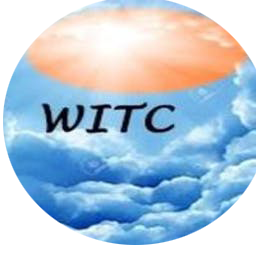



 My God! People have worked so hard. They’ve contributed their knowledge to enrich this world. Today you can use emoji icons to express your joy, tears, crying face, red heart, smiling face with love hearts, thinking face, and much more to communicate. When I decided to write on this emoji topic, I thought it would be an easy and straightforward task. I found out the hard way. Little did I know it wouldn’t be that easy as emoji’s world is not only being discovered but already explored almost to its fullness.
My God! People have worked so hard. They’ve contributed their knowledge to enrich this world. Today you can use emoji icons to express your joy, tears, crying face, red heart, smiling face with love hearts, thinking face, and much more to communicate. When I decided to write on this emoji topic, I thought it would be an easy and straightforward task. I found out the hard way. Little did I know it wouldn’t be that easy as emoji’s world is not only being discovered but already explored almost to its fullness.
My Gratitude to the Pioneers in this Industry
Therefore, without going further, I want to express my sincere gratitude to all those who have contributed so richly and immensely to this communicative field. And for that, I say a big thanks to all of you including the giants or the big players in the industry such as Google, Apple, Microsoft, Emojipedia, Samsung, WhatsApp, Twitter, Facebook, JoyPixels, OpenMoji, emojidex, Messenger, LG, HTC, Mozilla, and a host of others, are the real heroes of the industry.
What Does Emoji Stand For
An emoji is a common form of modern non-verbal communication that is becoming popular day by day, as more people want to know the meaning, and how to use them correctly as a swift and smooth way to communicate with each other. For that reason and many more, emoji have become so popular in many cultures and languages to the extent that they now have a special and international day marked and set aside for its celebration all over the world. For this reason, the World Day Emoji is celebrated every July 17 of each year.
Importance of Emoji
 The reason for World Emoji Day is geared towards promoting its usage world-wide as well as helping to spread its importance in terms of amusement, entertainment, anger, pleasure, hunger, laughter, and all other human’s conditions derived from its communicative usage that now affects all spheres of our lives.
The reason for World Emoji Day is geared towards promoting its usage world-wide as well as helping to spread its importance in terms of amusement, entertainment, anger, pleasure, hunger, laughter, and all other human’s conditions derived from its communicative usage that now affects all spheres of our lives.
How Is Emoji Perceived Generationally?
For me as a baby boomer, I sometimes find it hard to understand the meaning of many of these emoji; I may also want to believe that other baby boomers (54-72 years old); Generation-X (38-53 years old); some Millennials (22-37 years old);
post-millennials (0-21 years old); not to talk of the Silent Generation (73-90 years old); all may have the same difficulties. For these and other reasons, I have decided to put out this write up to help in my own small way to throw some light on this important topic.


